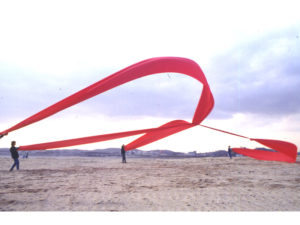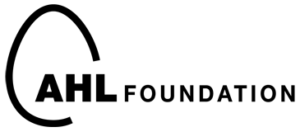By Dr. Kyung An
Assistant Curator, Asian Art, Solomon R. Guggenheim Museum, New York
Wednesday, December 19, 2019
6:30 PM – 8:00 PM
Korean Cultural Center(460 Park Avenue, 6th Floor, NYC)
*Free admission

(c) LEE SEUNG TAEK, WIND- FOLK AMUSEMENT, 1971
Performance with Fabric
This lecture considers how the notion of “experiment” emerged and transformed vis-à-vis rapidly changing socio-political and material conditions in Korea during the late 1960s and early 1970s. During this period of unprecedented modernization and urbanization conditioned by an authoritarian regime, anti-communism, and state-driven nationalism, new form of artistic practice like performance, film, installation and photography proliferated alongside painting and sculpture. These experiments centered on several core artist groups that actively organized publications and public seminars in addition to exhibitions, exploring a diverse range of issues including death and rebirth; the tension between the rural and the urban; the breakdown of traditional socio-cultural hierarchies and subjectivities; and the relationship between the body and space, and the individual and the state.
This presentation also introduces the practices of these seminal South Korean artists who were not only pioneers in their experimental spirit but engaged with the flourishing international contemporary art community in the decades following the Second World War. Famously coined the “global village” by Marshall McLuhan, this was an age of commercial flights, television sets, and man’s walk on the moon, marked by the geopolitics of Cold War. This talk reimagines the art historical landscape of this important period, studies of which are often dominated by artists working in the U.S., Europe, and to an extent Japan and Latin America. In doing so, it seeks to bring focus to the artists’ individual experiences and responses to both local and international socio-political conditions of the 1960s and the 1970s.
AHL Foundation Public Lecture Series 2019 In Collaboration with Korean Cultural Center New York

Image Courtesy of David Heald (c) Solomon R. Guggenheim Museum Foundation
In her role as Assistant Curator, Asian Art at the Guggenheim, Dr. Kyung An is currently on the curatorial team of two upcoming solo presentations on the artists Gego and Sarah Sze. Previously, she provided key support for The Robert H. N. Ho Family Foundation Chinese Art Initiative’s two commission-driven exhibitions, Tales of Our Time (2016) and One Hand Clapping (2018), and the internationally-touring Art and China after 1989: Theater of the World (2017). In addition to exhibitions, Dr. An makes significant contributions to collection growth through her role on Young Collectors Council and is also one of the founding curators of the Asian Art Circle. She also advises on the Guggenheim Abu Dhabi collection. At the Guggenheim, Dr. An is also the curatorial lead on Teaching Asian Modern and Contemporary Art, an initiative supported by the Freeman Foundation that aims to create teaching resources on works by Asian artists in the museum’s collection. Dr. An has authored essays to important publications on Korean artists such as Ha Chong-hyun, Lee Seung-taek, and Meekyoung Shin. She has also contributed to the 58th Venice Biennale catalogue and is a co-author of the book Who’s Afraid of Contemporary Art? (2017), which has been translated into four languages. She received her BA, MA in art history at the Courtauld Institute of Art, University of London, where she also obtained her doctorate in 2015.
AHL Foundation and Korean Cultural Center New York’s collaborative Public Lecture Series aims to provide the general public, as well as the Korean American community, with the opportunity to learn diverse theoretical perspectives on issues related to Korean art and culture and to reflect further on future interactions between Korean art and various worldwide global communities.
Organized by the AHL Foundation in collaboration with the Korean Cultural Center New York

